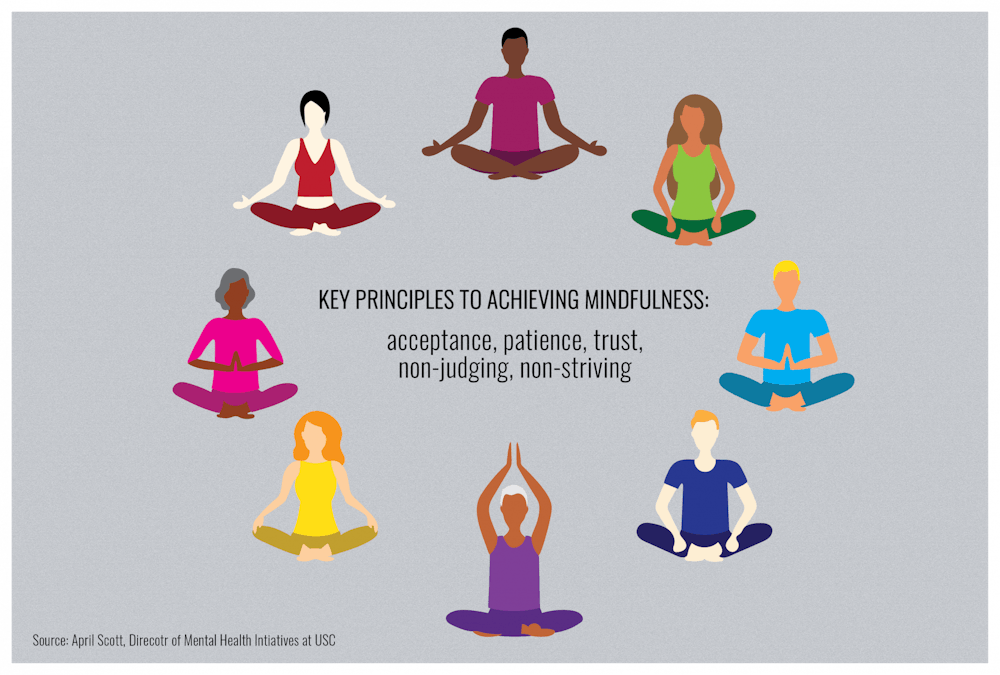USC is making efforts to create a more mindful campus by addressing faculty and staff's mental health. Mindfulness for Faculty and Staff under University Health Services offers online seminars to those in need.
Mindfulness is a broad term to describe intentionally paying attention to allowing yourself to be in the moment, according to April Scott, associate director of mental health initiatives at University Health Services.
“Being mindful is a time in which you are kind of fully present in the moment and not thinking of the past and not thinking of the future, often connected to breath,” Rebecca Caldwell, assistant vice president for administration and wellbeing, said.
The seminars start with a broad presentation about mindfulness. Then, those leading the seminars address narrower concepts. For example, the most recent seminar had a presentation on mindfulness surrounding grief. Following the presentation, the seminar allowed an opportunity for discussion followed by a closing meditation.
While these seminars are virtual, they also have a facility, C.A.L.M. Oasis, on the second floor of the Center of Health and Wellbeing. It is open to anyone with a Carolina Card and the spaces can be used for anything such as meditation, yoga or just as a place to go to ease the mind.
Student Health Services also offers daily guided meditation along with yoga classes three times a week, which can be attended virtually or in person. These sessions are open to students, faculty and staff. More information can be found on USC Mental Health Services website.
The seminars have seven key principles to achieving mindfulness, which include but aren’t limited to acceptance, patience, trust, non-judging and non-striving, Scott said.
These seminars originated from the need for improving the community’s mental health. University Health Services wanted to have a series of individuals trained to help facilitate mindfulness. It started out as a series for students but then moved into one for faculty and staff, according to Caldwell.
“One of the things we know is that just like our students, our faculty and staff need resources and support and programming around mental wellbeing and emotional well-being," Marguerite O’Brien, director of wellness prevention and advocacy services, said.
Although these seminars are directed at faculty and staff, they have the intention to benefit the campus as a whole, according to Scott.
“Students are critical to the mission of this organization, but if you don't have faculty and staff who are in good spaces, that's going to affect the quality of care and teaching and services students receive. So we want to make sure that our faculty and staff also feel supported by the university,” Scott said.
Student Health Services is looking to expand these programs to make more targeted approaches for students. Caldwell said she is excited about the opportunity to move the program forward and entice a bigger community around mindfulness meditation.
"We continue to find ways to bring it to students in places and spaces they want it and will benefit from it. So, I think that's kind of a continued growth area for us,” Caldwell said.

